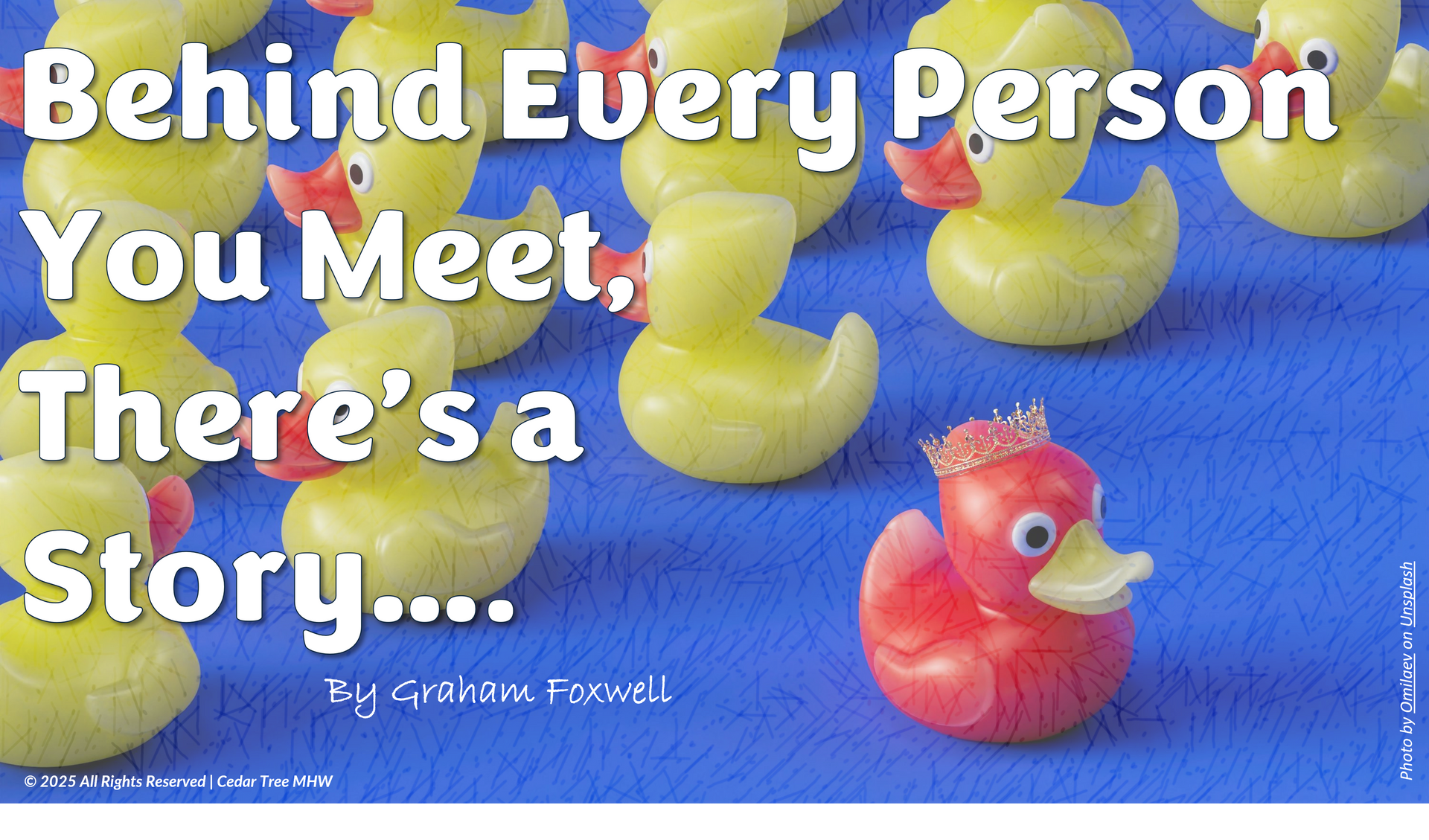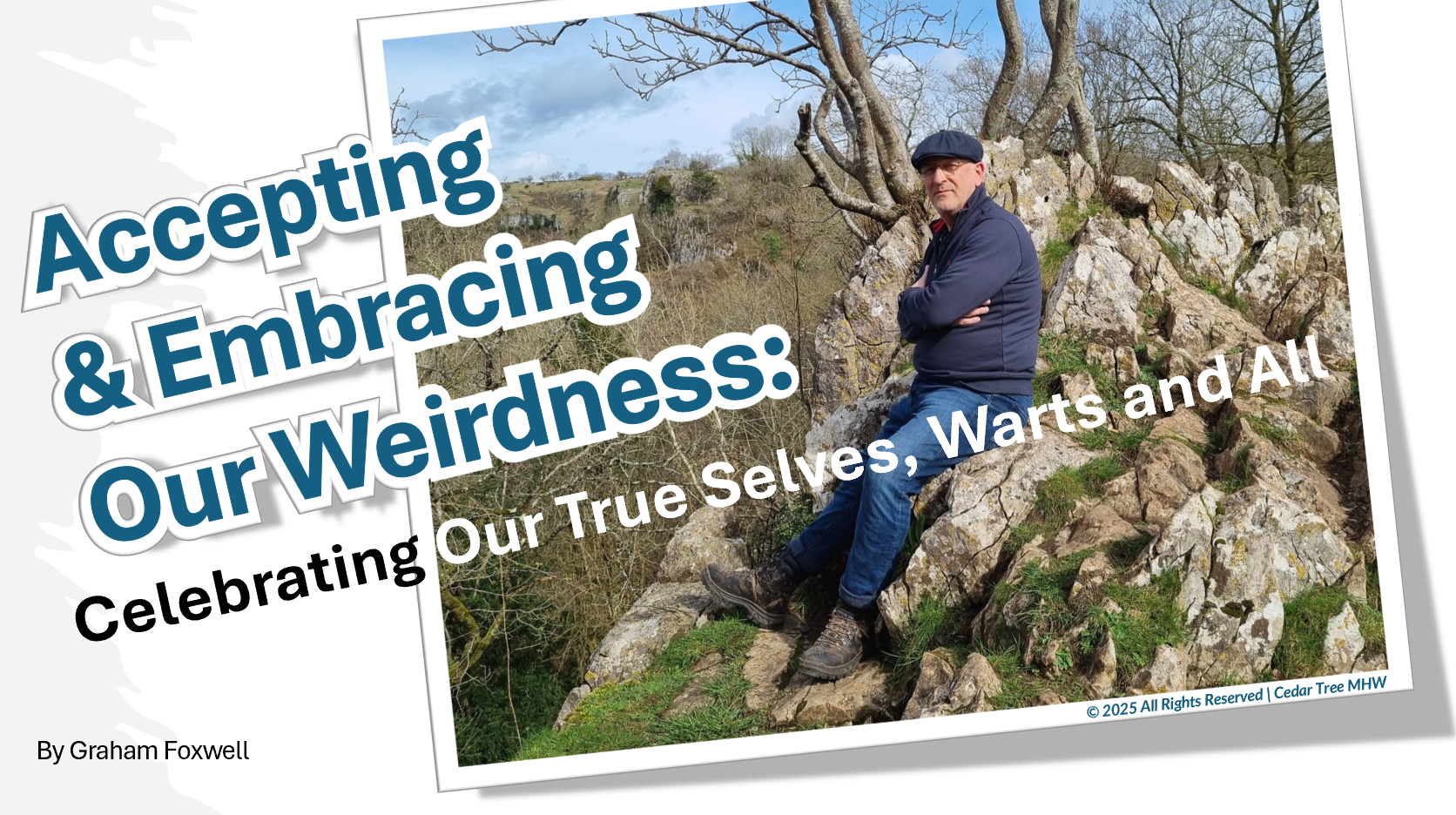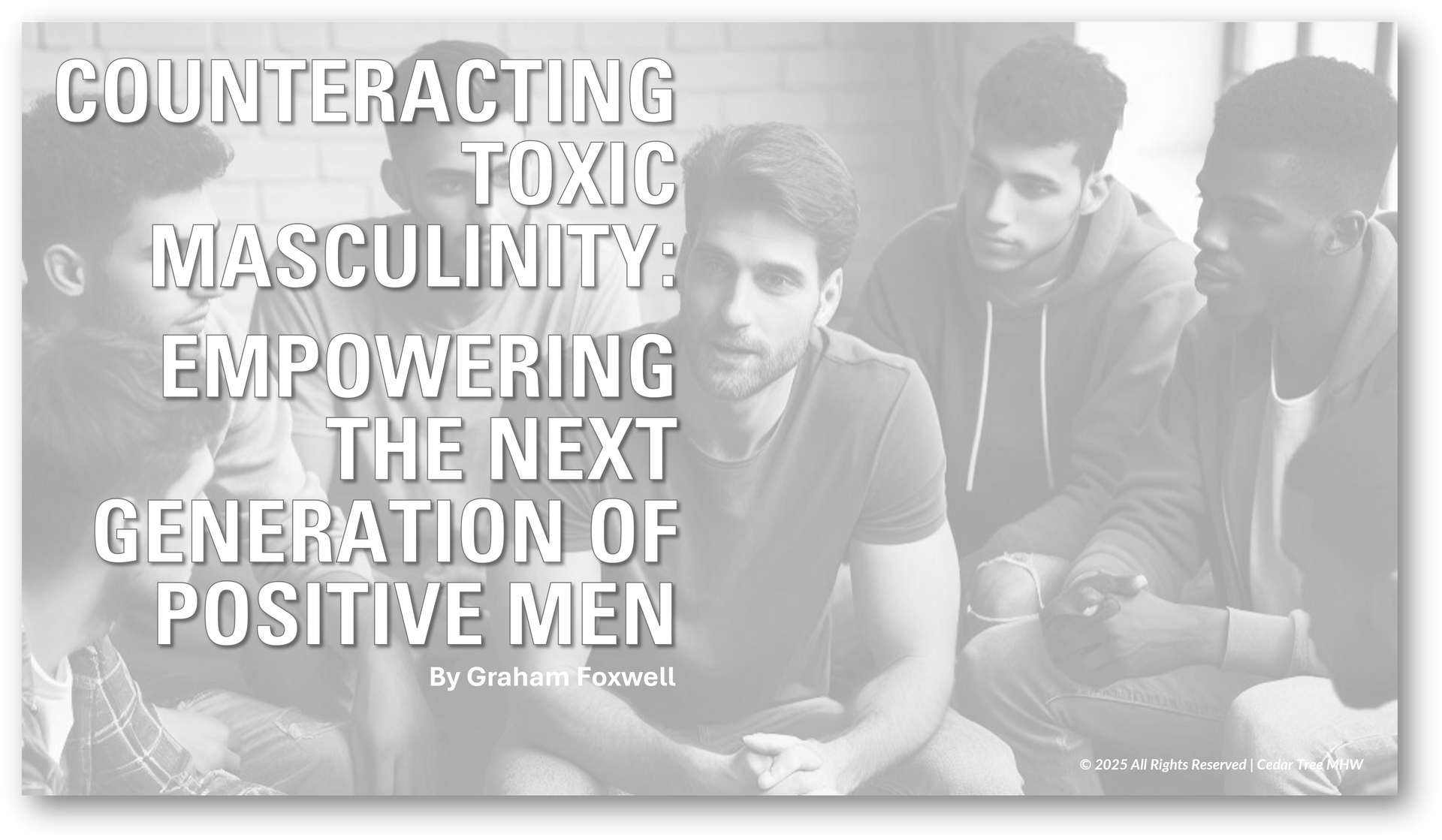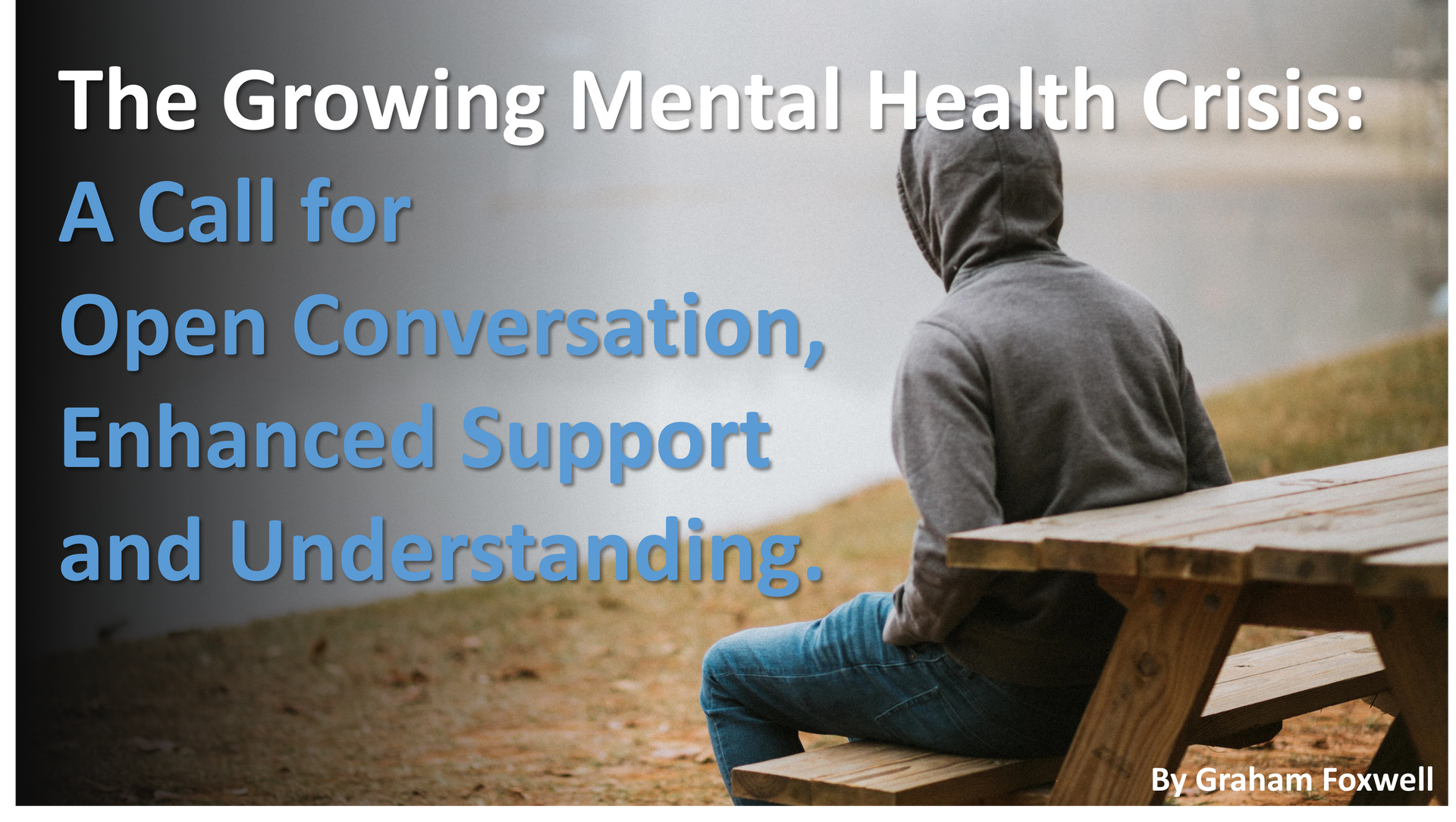Meet Emma, a 32-year-old woman living in the bustling city of London. From the outside, she seemed to have it all—a successful career in marketing, a loving partner, and a close-knit circle of friends. However, Emma harboured a secret she rarely shared with others: she struggled with severe anxiety and depression. The stigma surrounding mental health had made her wary of opening up to those around her.
Embracing the Power of Diversity!
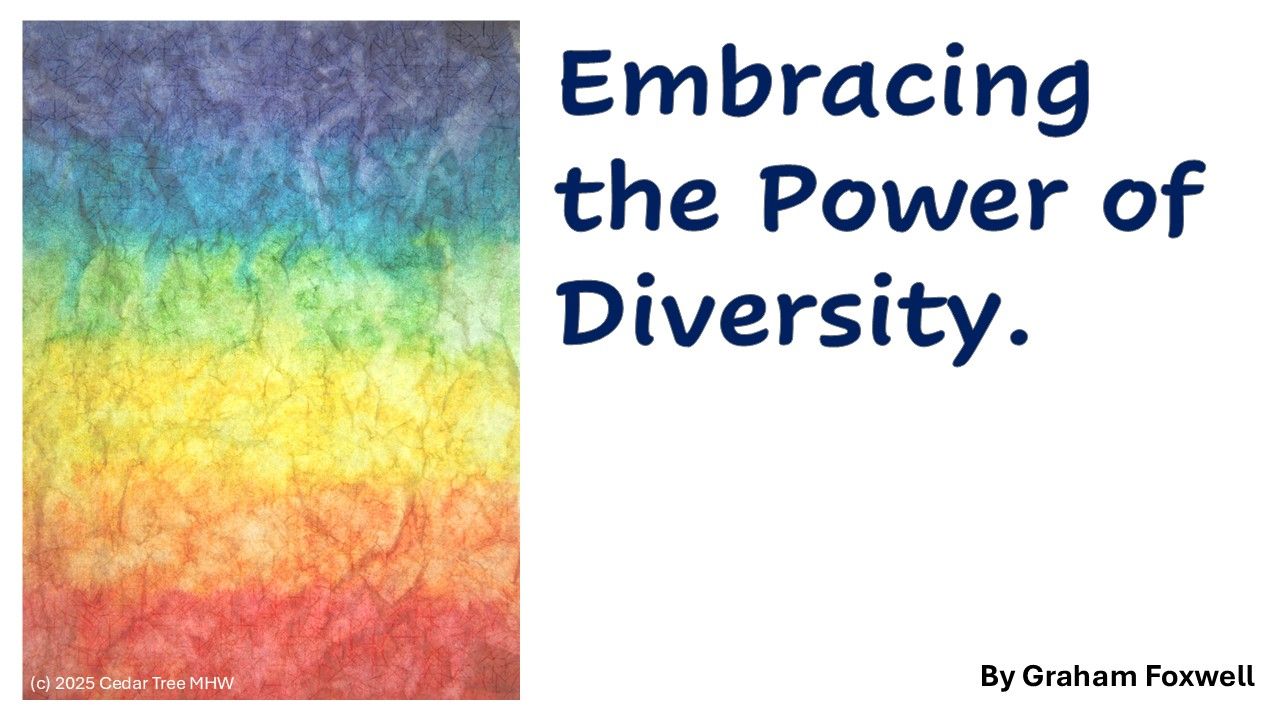

Despite progress, societal acceptance remains a steep uphill journey—In today's fast-paced world, where individualism and conformity often clash, understanding and accepting the differences in others' mental health, wellbeing, life choices, or neurodiversity can be a difficult and challenging for some people.
Understanding the Struggle
The core of the issue lies in our discomfort with the unfamiliar. Mental health issues, variations in wellbeing, and neurodiversity are often invisible to the naked eye, making them easier to dismiss. Our brains are wired to seek patterns and familiarity, but when faced with behaviours or ways of thinking that deviate from the norm, cognitive conflict sets in. This discomfort can lead to judgment, stigmatisation, and even fear.
Mental Health: Breaking the Silence
Mental health struggles can be particularly challenging to accept because they disrupt the expected narrative of how we think life should unfold. Anxiety, depression, bipolar disorder, Personality Disorder and other conditions can significantly impact an individual's behaviour, making them seem unpredictable or unreliable to those who don't understand. The stigma surrounding mental health often silences those suffering, perpetuating a cycle of misunderstanding and isolation.
Wellbeing: The Subjective Spectrum
Wellbeing is a deeply personal and subjective experience. What brings peace and happiness to one person may not resonate with another. Yet, societal pressures often dictate a one-size-fits-all approach to wellbeing, leaving those who diverge feeling alienated. The difficulty in accepting others' unique paths to wellbeing stems from a lack of empathy and the mistaken belief that there is a universal formula for a good life.
Neurodiversity: Valuing Different Perspectives
Neurodiversity encompasses a range of conditions, including ASD, ADHD, dyslexia, and many more. These differences in neurological functioning can lead to unique perspectives and abilities. However, society's emphasis on conformity can make it hard to appreciate these differences. The education system, workplaces, and social norms often fail to accommodate neurodiverse individuals, forcing them to adapt to environments that are not designed for their needs.

Emma’s Story continues….. One evening, after a particularly difficult day at work, Emma attended a mental health support workshop at a local community centre. The workshop was led by a compassionate therapist named Alex, who spoke openly about his own experiences with bipolar disorder. His honesty and vulnerability resonated deeply with Emma, inspiring her to attend more sessions and gradually share her own struggles.
Through these workshops, Emma met people from all walks of life—some dealing with Stress, others with Depression, and some simply seeking ways to improve their overall wellbeing. She found solace in their stories and began to understand the importance of acceptance and empathy. Emma realised that her own discomfort with her mental health issues was rooted in societal stigma and a lack of understanding.
Over time, Emma's newfound perspective transformed her relationships and outlook on life. She became an advocate for mental health awareness, speaking at events and sharing her story to break down barriers and foster understanding. Emma's workplace also embraced change, implementing mental health support programs and creating a more inclusive environment for employees.
Steps Towards Acceptance
Education and Awareness:
The first step in overcoming the difficulty of accepting differences is education. Understanding the nuances of mental health, wellbeing, and neurodiversity can dispel myths and reduce stigma. Schools, workplaces, and communities should prioritise awareness campaigns and training programs.
Empathy and Compassion:
Cultivating empathy is crucial. By listening to others' experiences without judgment, we can foster a more inclusive and supportive environment. Compassion involves recognising the shared humanity in everyone, regardless of their differences.
Inclusive Practices:
Creating inclusive spaces is essential. This means designing environments—whether physical, social, or digital—that cater to diverse needs. Employers, educators, and policymakers should strive to implement practices that accommodate all individuals.
Challenging Stigma:
Speaking out against stigma and discrimination is vital. By challenging negative stereotypes and advocating for those who are marginalised, we can create a culture of acceptance and respect.
Personal Reflection:
Finally, it is important to reflect on our own biases and prejudices. Understanding our reactions to others' differences and actively working to change them can lead to more meaningful connections and a deeper appreciation of diversity.
The Power of Compassion and Kindness
At the heart of acceptance lies the fundamental need for compassion and kindness. When we encounter someone who behaves, talks, looks, or thinks differently from us, it is an opportunity to practice empathy. By showing compassion, we acknowledge their struggles and validate their experiences. Acts of kindness can bridge the gap between differences, fostering a sense of belonging and support.
Acceptance is not about mere tolerance; it is about actively seeking to understand and appreciate the diverse tapestry of human existence. When we make an effort to understand someone else's perspective, we not only enhance their wellbeing but also enrich our own lives. In a world that often seems divided, compassion and kindness are powerful tools that can bring us closer together.

Emma's journey toward acceptance didn't just benefit her own wellbeing—it rippled outwards, impacting her friends, family, and colleagues. She learned to appreciate the diverse tapestry of human experiences and the power of compassion and kindness.
By embracing the challenge of accepting others who are different, Emma found not only a personal journey to recovery, but also a renewed sense of purpose and connection with those around her.
I hope this story serves as a reminder that acceptance is not just a personal journey but a collective effort to create a more understanding and inclusive world. I also hope this story demonstrates the transformative power of empathy, compassion and kindness, and the importance of breaking the silence surrounding poor mental health, wellbeing, and neurodiversity.
Conclusion
Accepting others' differences in mental health, wellbeing, and neurodiversity is not just a moral imperative; it is a pathway to a richer, more diverse society. By embracing these differences, we not only support those who struggle but also enrich our own lives with a broader range of perspectives and experiences. It's time to move beyond discomfort and towards understanding and acceptance.
I'd love to hear your thoughts on this topic. Have you encountered any specific challenges or triumphs in accepting differences in others? What steps do you think are most effective in fostering compassion and kindness?

Thank you for reading this.
Please feel free to add your comments and share.
Graham
#MentalHealthMatters #Wellbeing #Neurodiversity #EmbraceDifferences #CompassionAndKindness #EndTheStigma #InclusiveCommunity #BreakTheSilence #UnderstandingAndAcceptance #MentalHealthAwareness #NeurodiversityAwareness #EmpathyMatters #Cedartreemhw
(c) 2025 Cedar Tree MHW - https://www.cedartree-mhw.co.uk/
